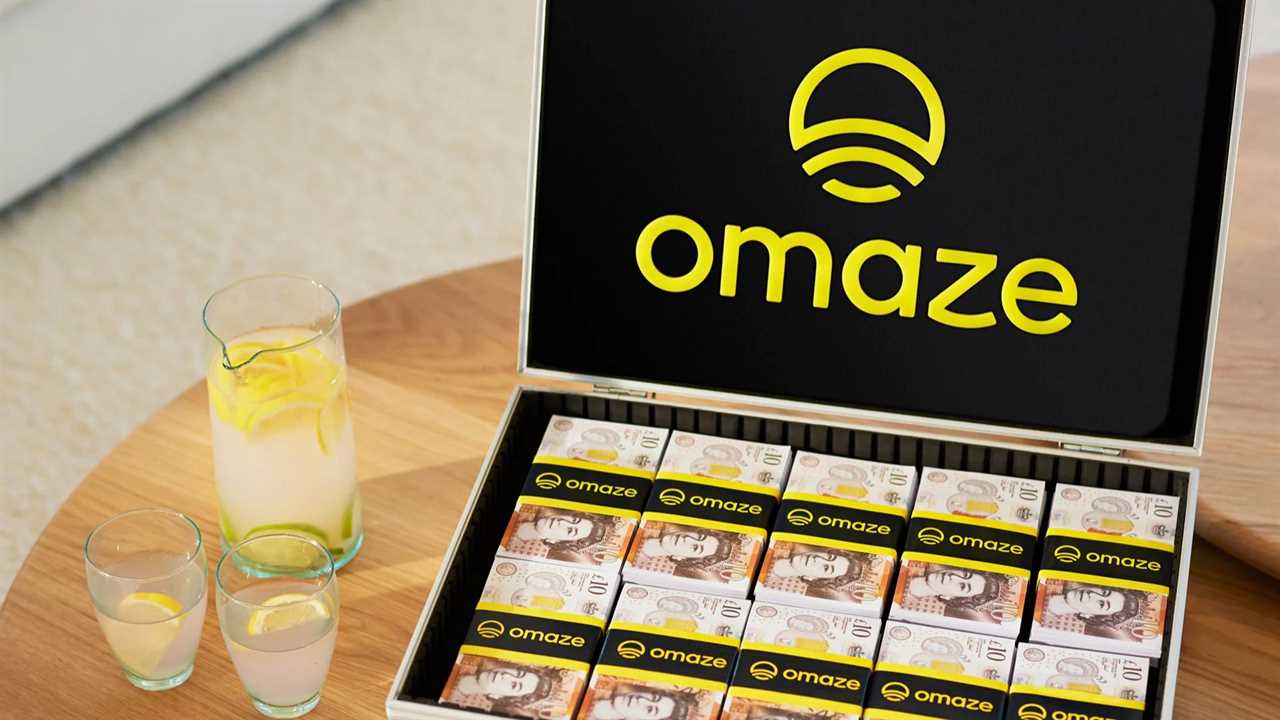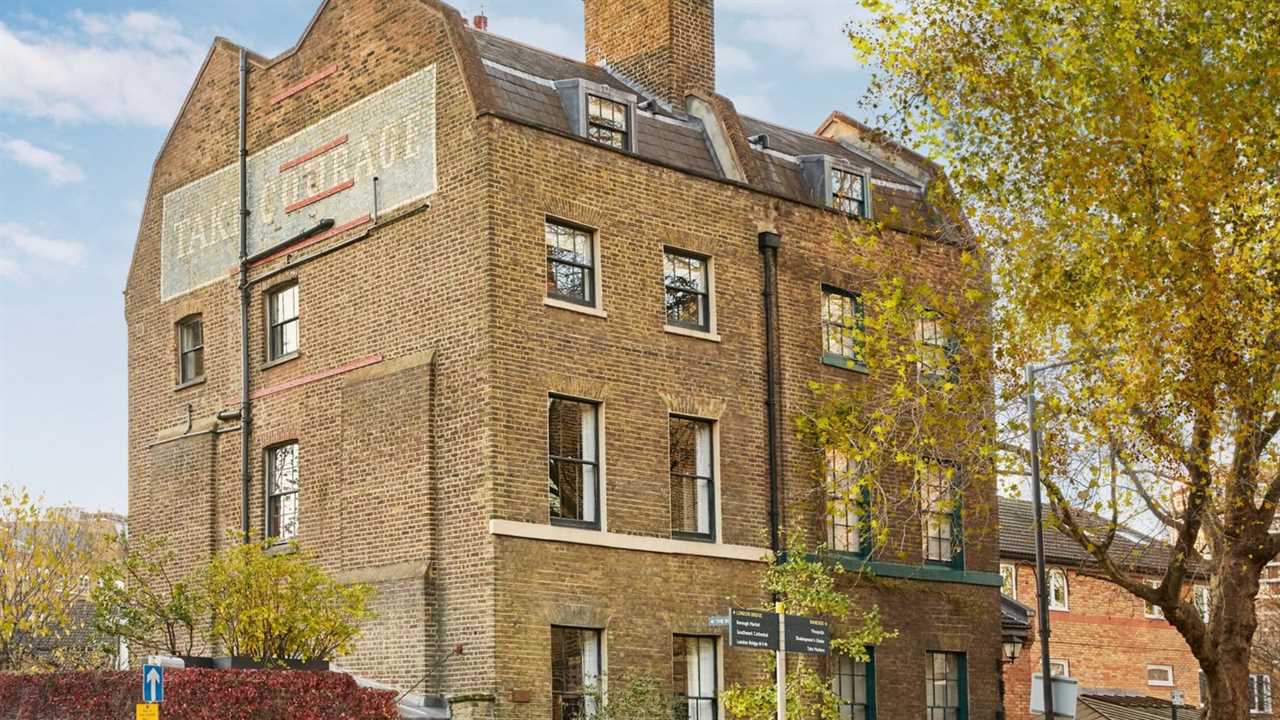
Spring is bringing more than just blooming flowers this year. Omaze is offering one fortunate individual the chance to win a staggering £500,000 in cash.
Entry Deadline Approaches
The impressive £500k cash prize is part of Omaze's Million Pound House Draw early bird offer. To participate, entries must be submitted by Sunday, 13 April.
Transform Your Dreams into Reality
Imagine eliminating your mortgage, embarking on global adventures, or supporting loved ones—all possible with this generous prize. Securing your entry before the deadline puts you in the running to claim half a million pounds.
Double Your Chances
Each entry for the Early Bird Prize DRAW also grants an additional opportunity to win the Grand Prize: a magnificent five-storey, four-bedroom Georgian townhouse in London valued at £4.5 million.

Luxury Living in Prime Location
This exquisite home offers uninterrupted views of The Shard, a garden crafted by Chelsea Flower Show winners, and is situated just moments away from the iconic Borough Market.
Exclusive Features and Elegant Interiors
The Georgian townhouse boasts a state-of-the-art kitchen, a steel-framed sunroom extension, and breathtaking views of the city skyline. Inside, original Georgian features are preserved, and the luxurious formal dining area is perfect for gatherings with family and friends.
Supporting a Worthy Cause
By entering, you're not only vying for a life-changing prize but also contributing to The King’s Trust charity, which aids disadvantaged young people in building a brighter future.
Open to UK residents aged 18 and over. No purchase necessary. Visit omaze.co.uk for full terms and to enter. Cash prize entry closes on 13 April 2025, and house prize entry closes on 27 April 2025.

Frequently Asked Questions
What is a budget deficit?
A budget deficit occurs when a government's expenditures exceed its revenues over a specific period, usually a fiscal year. This can lead to increased borrowing and national debt if not addressed through spending cuts or revenue increases.
What is the definition of money?
Money is a medium of exchange that facilitates transactions for goods and services. It serves as a unit of account, a store of value, and a standard of deferred payment, allowing individuals to compare the value of diverse products and services.
How can I improve my credit score?
To improve your credit score, make timely payments on all debts, reduce credit card balances, avoid opening unnecessary credit accounts, and regularly check your credit report for errors, disputing any inaccuracies. Maintaining a mix of credit types and keeping old accounts open can also be beneficial.
What is the difference between saving and investing?
Saving typically involves setting aside money in a secure account for short-term needs or emergencies, while investing involves using money to purchase assets like stocks or real estate with the expectation of generating a return over the long term. Investing carries higher risks but offers the potential for greater rewards.
What are the risks associated with investing in the stock market?
Investing in the stock market involves several risks, including market volatility, economic downturns, and company-specific factors that can lead to losses. Investors may also face liquidity risk, where they cannot sell an investment quickly without incurring a loss. Diversification and thorough research can help mitigate these risks.
How can I budget my money effectively?
To budget effectively, start by tracking your income and expenses to understand your spending habits. Set realistic financial goals, categorize your expenses, and allocate funds accordingly. Regularly review and adjust your budget to ensure it reflects your current financial situation and objectives.
What are credit scores and why are they important?
Credit scores are numerical representations of an individual's creditworthiness, calculated based on credit history, payment behavior, and debt levels. They are important because they impact the ability to obtain loans, credit cards, and favorable interest rates, affecting overall financial health.
Statistics
- The average cost of raising a child in the U.S. is estimated to be around $233,610, according to the U.S. Department of Agriculture.
- A report by Bankrate indicated that only 29% of Americans have a written financial plan.
- According to the Bureau of Labor Statistics, the average American spends about $1,500 per year on coffee.
- In 2020, the average retirement savings for Americans aged 60 to 69 was approximately $195,000, according to Fidelity.
- As of 2021, the median household income in the U.S. was approximately $67,521, according to the U.S. Census Bureau.
- A study by the National Endowment for Financial Education found that 60% of Americans do not have a budget.
- According to the Federal Reserve, approximately 39% of Americans do not have enough savings to cover a $400 emergency expense.
- According to a survey by the Financial Industry Regulatory Authority (FINRA), about 66% of Americans could not correctly answer four basic financial literacy questions.
External Links
How To
How To Start Investing for Beginners
Starting to invest can be daunting, but it is a crucial step towards building wealth. Begin by setting clear financial goals, such as saving for retirement or a major purchase. Educate yourself on different investment options, including stocks, bonds, mutual funds, and ETFs. Consider starting with a brokerage account that offers user-friendly platforms and educational resources. Diversify your investments to reduce risk, and consider low-cost index funds or robo-advisors if you prefer a hands-off approach. Make regular contributions, and resist the temptation to react to market fluctuations. Over time, compound interest will help your investments grow significantly.
Did you miss our previous article...
https://hellofaread.com/money/score-a-free-20-lindt-easter-egg-with-these-simple-steps
 PoliticsRoyaltySoap OperaGamingMoneyPrivacy PolicyTerms And Conditions
PoliticsRoyaltySoap OperaGamingMoneyPrivacy PolicyTerms And Conditions
